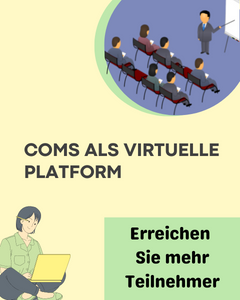Konferenzen > Physik > Quantenmechanik und Quantentechnologie > Deutschland
Wählen Sie ein Land aus
Australien (1) Brasilien (9) China (1) Costa Rica (1) Deutschland (19) Finnland (1) Frankreich (3) Griechenland (2) Großbritannien (1) Indien (2) Italien (6) Japan (1) Kanada (2) Niederlande (1) Norwegen (5) Polen (2) Republik Korea (2) Singapur (1) Spanien (6) Tschechische Republik (1) Vereinigte Arabische Emirate (1) Vereinigte Staaten (5) Österreich (1)
Deutschland
1
Baltic-German WE-Heraeus-Seminar — Quantum Sensors, Devices and Materials
15. Mär 2026 - 18. Mär 2026 • Bad Honnef, Deutschland
Eintrags-ID:
1687723
2
WE-Heraeus-Seminar — 90 Years of Einstein‐Podolsky‐Rosen Paradox: Foundations and Applications
07. Apr 2026 - 10. Apr 2026 • Bad Honnef, Deutschland
Eintrags-ID:
1687848
3
WE-Heraeus-Seminar — New Opportunities in Physics‐based Computing: Magnonics, Spintronics, Photonics and Beyond
26. Apr 2026 - 30. Apr 2026 • Bad Honnef, Deutschland
4
Seminar and Workshop — Emergent Gauge theories: Bridging Quantum Matter, Quantum Information, and Fundamental Interactions
01. Jun 2026 - 19. Jun 2026 • Dresden, Deutschland
Eintrags-ID:
1683337
5
WE-Heraeus-Seminar — New Trends in Degenerate Gases: Quantum Computation and Simulation
21. Jun 2026 - 26. Jun 2026 • Bad Honnef, Deutschland
Eintrags-ID:
1687947
6
859. WE-Heraeus-Seminar — New Trends in Degenerate Gases: Quantum Computation and Simulation
22. Jun 2026 - 26. Jun 2026 • Bad Honnef, Deutschland
Eintrags-ID:
1680506
7
Workshop — Engineered strongly-interacting lattice models with atomic quantum simulators
29. Jun 2026 - 03. Jul 2026 • Dresden, Deutschland
Eintrags-ID:
1683327
8
GITEX AI EUROPE 2026
30. Jun 2026 - 01. Jul 2026 • Berlin, Deutschland
Eintrags-ID:
1693434
Webseite:
9
FTQC4NSc — Fault-tolerant Quantum Computing for Natural Sciences
06. Jul 2026 - 08. Jul 2026 • Heilbronn, Deutschland
Eintrags-ID:
1695242
Webseite:
10
WE-Heraeus-Seminar — Recent Advances in 2D Moiré Materials
26. Jul 2026 - 30. Jul 2026 • München, Deutschland
Eintrags-ID:
1688018
11
Workshop — Quantum many-body systems out of equilibrium: Relaxation, thermalization, and ergodicity breaking
31. Aug 2026 - 04. Sep 2026 • Dresden, Deutschland
Eintrags-ID:
1683231
12
School for Master Students — From Quantum Matter to Quantum Computers
07. Sep 2026 - 11. Sep 2026 • Dresden, Deutschland
Eintrags-ID:
1683254
13
WE-Heraeus-Seminar — Input, Output, Insight: Inference from Black Boxes – Contextuality, Bell Inequalities, and Beyond
14. Okt 2026 - 17. Okt 2026 • Physikzentrum Bad Honnef, Deutschland
14
Israeli-German WE-Heraeus-Seminar — Unifying Aspects of Topology in Quantum and Classical Systems
26. Okt 2026 - 30. Okt 2026 • Physikzentrum Bad Honnef, Deutschland
Eintrags-ID:
1688164
15
WE-Heraeus-Seminar — New Directions and Implications of the Chirality Induced Spin Selectivity Effect
29. Nov 2026 - 03. Dez 2026 • Physikzentrum Bad Honnef, Deutschland
16
WE-Heraeus-Seminar — Quantum Entanglement – New Concepts and Opportunities
14. Feb 2027 - 17. Feb 2027 • Physikzentrum Bad Honnef, Deutschland
Eintrags-ID:
1688234
17
WE-Heraeus-Seminar — Schrödinger Cats 2027
11. Apr 2027 - 16. Apr 2027 • Physikzentrum Bad Honnef, Deutschland
Eintrags-ID:
1688233
18
WE-Heraeus-Seminar — Multi‐Species Trapped‐Ion Quantum Logic
09. Mai 2027 - 14. Mai 2027 • Physikzentrum Bad Honnef, Deutschland
Eintrags-ID:
1688319
19
WE-Heraeus-Seminar — Emerging Directions in Neutral‐Atom Quantum Information Science
22. Aug 2027 - 26. Aug 2027 • Physikzentrum Bad Honnef, Deutschland
Eintrags-ID:
1688295
Conference-Service.com stellt der Öffentlichkeit ein Kalendarium wichtiger Konferenzen, Symposien und sonstiger Tagungen im wissenschaftlich-technischen Bereich zur Verfügung. Obwohl das Verzeichnis mit großer Sorgfalt zusammengestellt und ständig aktualisiert wird, weisen wir auf die Möglichkeit von Fehlern ausdrücklich hin. Bitte vergewissern Sie sich immer beim Veranstalter, bevor Sie über die Teilnahme oder Nichtteilnahme an einer Konferenz entscheiden.
Stand vom 1. Februar 2026



